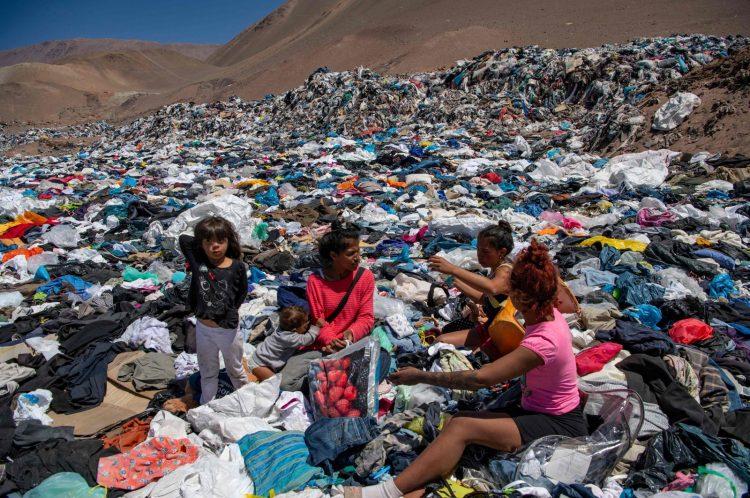
Beirut, Lebanon (Enmaeya News) — A €1 million fine issued by Italy’s Competition Authority on August 4 against global fast-fashion powerhouse "Shein" has reignited debate over the environmental cost of ultra-cheap, disposable fashion.
The sanction follows claims that Shein misled consumers through vague and unverified statements about the sustainability of its garments, particularly through campaigns like #SHEINTHEKNOW and "evoluSHEIN by Design."
These claims, regulators say, falsely portrayed the company’s products as recyclable or circular despite mounting evidence that Shein’s emissions have increased in recent years.
The Shein model, built on speed and scale, relies on speed and volume, flooding the market with thousands of new designs every day at very low prices. This encourages people to treat clothes as disposable, wearing them only once or twice before discarding them.
While the environmental damage from fast fashion is a global issue, its impact is especially severe across the Mediterranean region, including Lebanon. The fashion industry is a major source of carbon emissions, water waste, and microplastic pollution, yet most countries in the area have weak regulations to address these problems.
Lebanon's Textile Waste Crisis
In Lebanon, the consequences of the fast-fashion boom are becoming harder to ignore. Cheap polyester garments, often purchased online from global retailers, flood the market and frequently end up in informal landfills around Beirut and secondary cities.
Lebanon has no national system for textile recycling or formal reuse. Most discarded clothing ends up in landfills or is burned, causing air and soil pollution. Synthetic fibers from these garments also seep into the environment, contaminating farmland and coastal waters. For a country already under environmental strain, this growing waste problem is an urgent challenge.
Online sales platforms targeting young Lebanese consumers often encourage rapid buying through influencer campaigns and flash sales. This fuels a culture of overconsumption where trends change weekly and quality is overlooked. Many items are worn only once or twice before tearing, fading, or falling apart, shortening their already brief lifespan.
The Need for Sustainable Solutions
Despite some awareness efforts, Lebanon lacks strong policies or enforcement to regulate garment imports and their lifecycle. Without laws requiring transparency about textile origins, recyclability, or harmful chemicals, retailers face little pressure to follow sustainability standards. At the same time, consumers have limited access to durable, locally made clothing.
Initiatives supporting reuse markets, secondhand platforms, and clothing repair services could help reduce textile waste. Awareness campaigns in schools and universities may also play a key role in changing consumer behavior. Encouraging the public to consider the environmental impact of clothing can help Lebanon move toward a circular fashion economy.
Regulatory actions like Italy’s fine are a step in the right direction. But real change requires systemic transformation—starting with how people consume, regulate, and dispose of clothing. In Lebanon, that means facing the environmental and social costs of fast fashion and creating a sustainable path forward.



